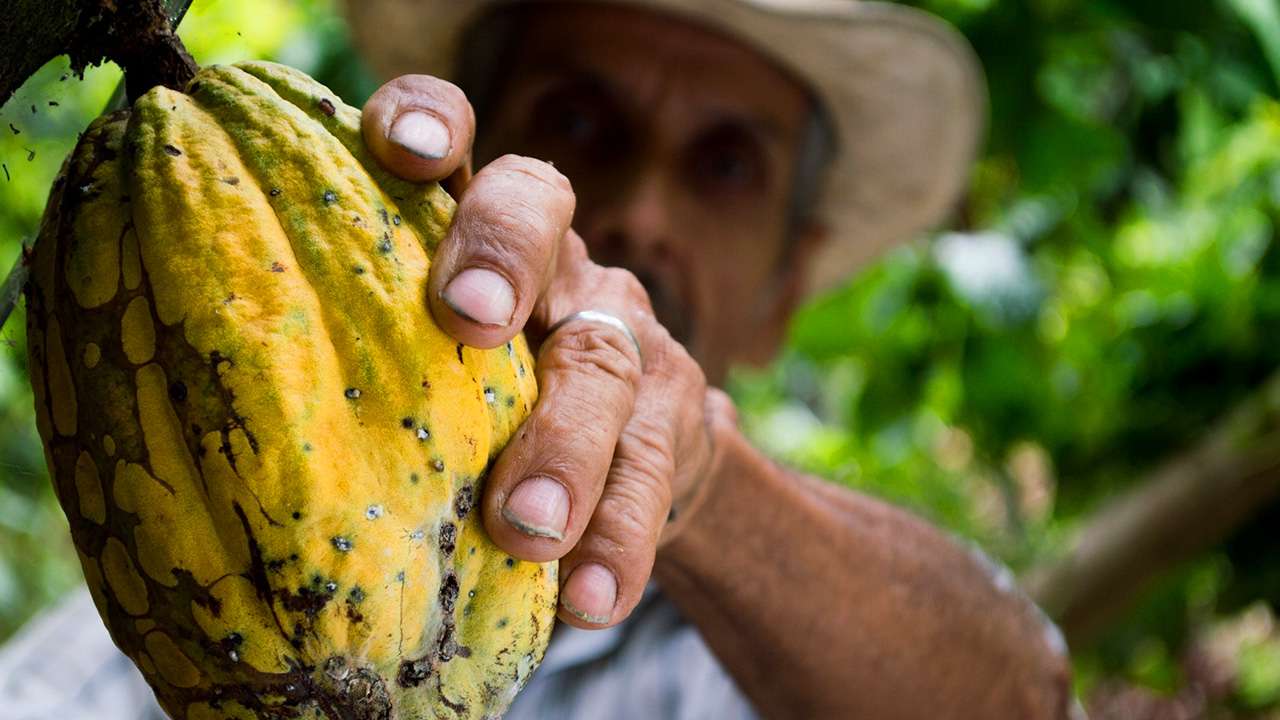POSTED Mar 22, 2022 - 05:57 PM
Want to make your business more sustainable? Here’s where to start
If you want to shift to more sustainable practices, the good news is you don’t actually have to spend more
Original source: https://nolisoli.ph/71607/auro-chocolate-mark-ocampo-kleoc-20191210/
Originally written by Kleo Catienza
Additional text by Pauline Miranda
To say that MSMEs make up our country’s economy is an understatement. As of 2020, micro, small, and medium enterprises (MSMEs) account for a whopping 99.5 percent of the country’s established businesses, according to the Department of Trade and Industry (DTI).
While accommodation and foodservice activities amount to 14 percent, and agriculture, forestry, and fishing make up only 0.87 percent, the overall effect of these industries on the global scale is undeniable.
The Ellen MacArthur Foundation, in its Cities and Circular Economy for Food report, writes about how poor agricultural practices in the food production chain contribute to pollution and the degradation of natural capital. “The agrifood industry is the world’s second largest emitter of greenhouse gases, responsible for approximately 25 percent of all human-caused emissions.”
But with these industries providing the most essential products, how can we set back its negative effects? Changes in production and processes of businesses and industries can help.
In 2017, the Global Green Growth Institute (GGGI), in cooperation with DTI, conducted a case study on green business practices to provide ways for MSMEs to better incorporate sustainability in their processes.
Sustainable practices
The most common practice businesses can adopt is to farm or source organic products. Reusing waste materials that come out of production processes are also common. In the GGGI study, MSMEs use byproducts like chocolate shavings for cleaning, and other waste products like carton boxes and sacks as rugs and bags respectively, until they’re worn out.
Sustainability isn’t limited to products though. The small businesses studied also made efforts in reducing emissions and saving energy by making changes to their operations. For example, LPG could be substituted by alternative, cheaper fuel sources like pili shells and rice husks (which are also byproducts of production). Some also choose to operate with natural light to save on energy consumption.
To further reduce waste, businesses can also partner with educational and research institutes to innovate on uses of byproducts, which can, in turn, be utilized either within the business’ operations or further developed as new products for sale.
Ensuring humane business practices can also be part of MSMEs’ sustainability efforts. Making sure that producers are ethically and properly compensated for their labor is one such example.
Empowering people as part of sustainability
There are clear examples of how investing in people can also lead to business success. Take homegrown bean-to-bar chocolate brand Auro Chocolate for example. Now internationally recognized, the brand sources cacao beans from farming communities in Davao and processes them as bars in Laguna.
For co-founder and managing director Mark Ocampo, highlighting the work of the country’s “unspoken heroes”—that is, our farmers—is just as important in building and developing their brand.
In fact, he let the late Mang Jose himself, one of the cacao farmers they partnered with, receive the Top 20 Best Cacao Beans in the World for the Cacao of Excellence award at Salon du Chocolat in Paris, France on Oct. 16, 2019.
“Sometimes people think that they [the farmers] are easy in a sense. But what they don’t realize is that farmers are extremely intelligent and hardworking,” Ocampo says. He believes that the people behind the success of a brand deserves more than just fleeting attention—which, in his case, are the Davao farmers.
“People need to realize that if you empower smallholders, such as the farmers, the more the country will elevate itself,” he adds.
To date, Auro Chocolate supports 3,000 farmers in Davao. Ocampo continues to open up opportunities for farmers to add value to the initial sourcing cost. Farmers earned P50,000 per hectare in 2015 but Auro pays them as much as P200,000 per hectare now, depending on the quality of the beans. Aside from this, they are also offered basic business admin training.
Although he’s still focused on sourcing beans from Davao, he assures that they have future plans of getting supplies from other parts of the country, too, to extend their support for the local farming industry. “Our main goal is that as our company grows, we don’t leave anyone behind,” Ocampo says.
Shared responsibility
Although local producers are making strides in establishing and continuing good green business practices, globally, the chocolate industry is still seen as a contributor to climate change. In a 2018 study published in Food Research International, the chocolate industry in the UK was found to be responsible for two million metric tons of CO2 emissions.
The study cites excessive packaging, sourcing from deforested farmlands as well as massive energy use at manufacturing plants as contributing factors to the industry’s unsustainability.
While the study focused on the chocolate industry, the factors cited are common to other agrifood industries as well.
Consumers have a role in changing this. Choosing products with less packaging, sticking to items with less ingredients (in the case of chocolate, choosing dark over milk chocolate), and consuming moderately are simple steps to take.
Ultimately, institutions should actively make changes to their processes. As exemplified in the GGGI-DTI case study, switching to organic produce, reusing waste, using natural alternative fuel and energy sources, and spearheading innovation and research are key areas for businesses to balance growth and sustainability.
For more information and news on food, food businesses, restaurants, local food brands, food lifestyle, and entrepreneurship, visit IFEXCONNECT and FOODPHILIPPINES
Read more
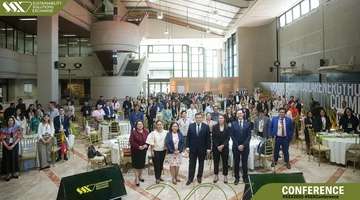
EU, PH push for green solutions in food industry at Sustainability Solutions Exchange 2025
Aiming to develop a sustainable Philippine food industry, the European Union (EU) and the Department... Learn More
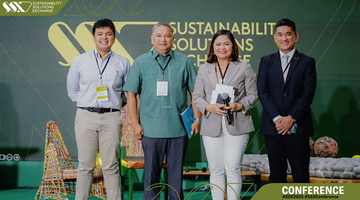
SSX Conference yields strategies for circular PH food industry
Transformative ideas took root at the Sustainability Solutions Exchange (SSX) Conference, where entr... Learn More
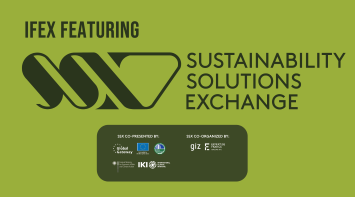
EU, PH aim to future-proof Philippine food industry at SSX 2025
In partnership with the European Union (EU), the Department of Trade and Industry’s Center for Inter... Learn More
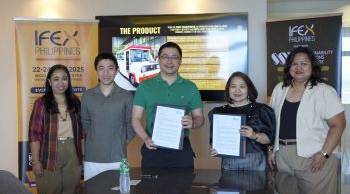
CITEM to spotlight local jeepney maker’s electric multi-purpose vehicles overseas
Seeking greater exposure overseas for its sustainable vehicles, renowned Filipino jeepney manufactur... Learn More
